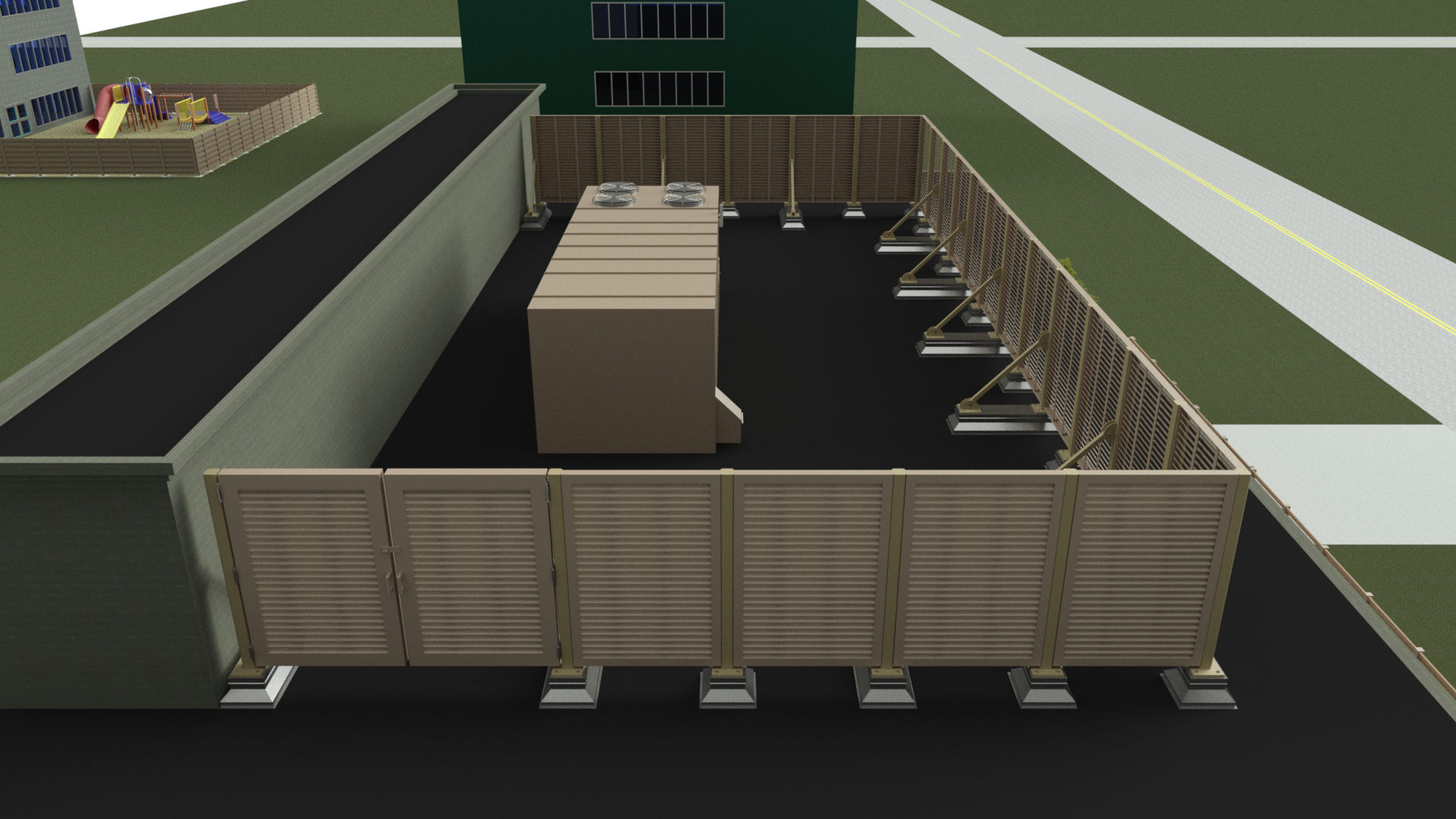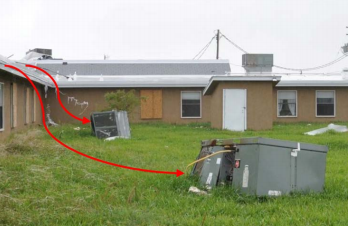What is Rooftop Equipment Screening?

Rooftop equipment, such as HVAC systems, generators, and communication devices, is a vital component of modern buildings and commercial structures. While these systems are essential for maintaining the comfort and functionality of the spaces below, they often pose aesthetic challenges for building owners and architects. Unsightly rooftop equipment can detract from a building’s overall appearance, potentially reducing its curb appeal and market value. Think about first impressions. If clients stop by your facility for a meeting and they see mechanical equipment jutting out from the roof, they might assume your building’s poorly maintained and thus take their business elsewhere. Their concerns might not be unfounded: high winds and unprotected rooftop equipment can lead to damage and serious hazards. To address these issues, rooftop equipment screening has become a crucial consideration in contemporary building design and management.
PalmSHIELD’s sales staff is ready to discuss your architectural screen fencing and wall project today!
Why Rooftop Equipment Screening Matters
Let’s begin by addressing: What is rooftop equipment screening? Simply put, it consists of architectural and mechanical equipment screen fixtures that surround your rooftop-situated installations. Obscuring and protecting these items carry a number of benefits, including:
- Aesthetic Appeal
One of the primary reasons for implementing screens is to improve a building’s visual appeal. Unsightly rooftop equipment can be an eyesore, especially in urban environments with a high concentration of buildings. As a result, they can potentially lower your building’s property value and turn off potential customers. Screening solutions help blend these structures into the surrounding architecture, ensuring that the rooftop equipment doesn’t disrupt the overall design aesthetic. Here at PalmSHIELD, our expert designers and fabricators assemble screens that obscure items of various heights from ground level. - Compliance with Regulations
In some communities, the law requires property owners to install rooftop equipment screening. Many cities and municipalities nowadays have strict zoning regulations and building codes governing rooftop equipment. These regulations often require the screening of rooftop equipment to ensure that it is not visible from the street or neighboring buildings. Compliance with these codes is crucial to avoid potential fines or legal issues. - Protection and Maintenance
Don’t forget about the harsh effects Mother Nature can have on fixtures. Being an outdoor installation, rooftop equipment remains exposed to the elements and can be vulnerable to damage from wind, rain, snow, and UV radiation. The last thing you want is for your antennas, solar panels, etc. to be knocked off the roof during a storm. In addition to racking up costs of thousands of dollars (or more!), items being torn from the roof pose serious health hazards to employees, visitors, and neighbors. Proper screening not only conceals the equipment but also offers protection, prolonging its lifespan and reducing maintenance costs. - Noise Control
While HVACs and generators provide functions necessary for smoother operations, they’re also known to produce noise disruptive to productivity. Some rooftop equipment, such as HVAC systems, can generate noise that may disturb occupants of neighboring buildings or outdoor spaces. Screening can help mitigate these disturbances by providing a barrier that absorbs or reflects sound and dampens vibration. Think again, also, about impressions to clientele: who wants to give their money to a business whose property is overrun with chaotic, distracting noise?

PalmSHIELD’s sales staff is ready to take your call!
Considerations for Rooftop Equipment Screening
- Aesthetic Integration: The privacy screen solution should complement the building’s design, materials, and color palette to ensure a cohesive appearance.
- Accessibility: It’s important to design privacy screen solutions that allow for easy access to rooftop equipment for maintenance and repairs.
- Ventilation: Ensure that any privacy screen solution does not obstruct airflow to equipment, especially for HVAC systems, to maintain their efficiency.
- Code Compliance: Always consult local building codes and zoning regulations to ensure compliance with screening requirements.
Rooftop equipment screening is a vital aspect of modern building design and management. It serves both aesthetic and functional purposes by concealing unsightly equipment, complying with regulations, protecting the equipment, and reducing noise and vibration disturbances. By carefully considering the design and materials used for privacy screen solutions, building owners and architects can enhance the overall appearance and functionality of their structures while adhering to regulatory standards. Effective screening is a win-win solution that benefits both the building and the community it serves.
Still have questions about rooftop equipment screening? Contact our sales staff today!
